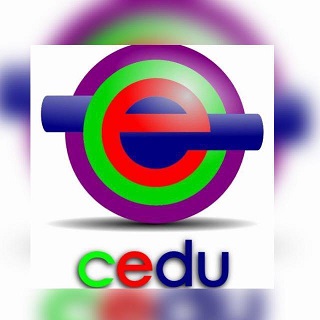SPORTS MEDIA SCHEDULING AROUND THE FIVE NEW MODALITIES OF THE TOKYO/2020 OLYMPIC PROGRAM
Keywords:
Mass Media, Mass Media, Sports, Sports, Youth, YouthAbstract
This paper, of a descriptive-exploratory nature and of documentary type, identified and analyzed the media-sports scheduling strategies around the five new sports modalities included in the Tokyo/2020 Olympics. Between 08/01/2019 and 03/24/2020, we followed and observed two main Brazilian internet portals, GloboEsporte.com and UOL, selecting all reports that mentioned the 5 new Olympic modalities. Using the content analysis technique, we came up with four categories: personification, imagery culture, medal expectations and pandemic, which, briefly, were the way the vehicles used their strategies to guide the event, draw public attention, informing the public of the sports mega-event, presenting the new modalities, which shows the market and spectacular character of these bodily practices which have now been through a sportivization process.
Downloads
References
BARDIN, L. Análise de conteúdo. Lisboa: Edições 70, s/d.
BETTI, M. Janela de vidro: esporte, televisão e educação física. Campinas: Papirus, 1998.
BORELLI, V. O esporte como uma construção específica no campo jornalístico. In: CONGRESSO ANUAL EM CIÊNCIA DA COMUNICAÇÃO, 25, 2002, Salvador/BA. Anais... Salvador: INTERCOM, 2002.
BORELLI, V.; FAUSTO NETO, A. Jornalismo esportivo como construção. Cadernos de Comunicação, Santa Maria, n. 7, p. 61-74, dez. 2002.
FAUSTO NETO, Antônio. O agendamento do esporte: uma breve revisão teórica e conceitual. Verso & Reverso Revista da Comunicação, São Leopoldo, ano XVI, n. 34, p. 9-17, jan./jun. 2002.
GEBARA, A. Apresentação. In: GEBARA, A.; PILATTI, L. A. (orgs.) Ensaios sobre história e sociologia nos esportes. Jundiaí: Fontoura, 2006. p. 9-12.
GIL, A. C. Como elaborar projetos de pesquisa. 3ª ed. São Paulo: Atlas, 1996.
GURGEL, A. O esporte e a convergência das mídias: Análise da campanha publicitária “write the future”, da Nike. In. CONGRESSO ANUAL EM CIÊNCIA DA COMUNICAÇÃO, 34, 2011, Recife/PE. Anais... Recife: INTERCOM, 2011.
KELLNER, D. Cultura da mídia e triunfo do espetáculo. In: MORAES, Dênis de (org.). Sociedade midiatizada. Rio de Janeiro: Mauad, 2006. p. 119-147.
MCCOMBS, M. A teoria da agenda: a mídia e a opinião pública. Petrópolis: Vozes, 2009.
MELO, V. A. de. Esporte. In: MELO, V. A. de (org.). Dicionário do Esporte no Brasil: do século XIX ao século XX. Campinas: Autores Associados; Rio de Janeiro: Decania do Centro de Ciências da Saúde da UFRJ, 2007. p. 68-70.
MINAYO, M. C. de S. (org.). Pesquisa social: teoria, método e criatividade. 29ª. ed. Petrópolis: Vozes, 2010.
MUSSA, F. de S. Construção do ídolo esportivo na mídia. Trabalho de Conclusão de curso. 2010. 41 f. (Graduação) – Curso de Graduação em Comunicação Social, Habilitação em Jornalismo, Escola de Comunicação, Universidade Federal do Rio de Janeiro, Rio de Janeiro, 2010.
NEPOMUCENO, L. B. et al. A esportivização do surfe: reflexões a luz de Pierre Bourdieu. Motrivivência, Florianópolis, v. 32, n. 62, p. 01-17, jun. 2020.
PIRES, G. De L. Breve introdução ao estudo dos processos de apropriação social do fenômeno esporte. Revista da Educação Física UEM, Maringá, v. 9, n. 1, 1998. Disponível em: <http://periodicos.uem.br/ojs/index.php/RevEducFis/article/view/3824>. Acesso em: 25 ago. 2015.
SANFELICE, G. R. Processos midiáticos no campo esportivo. Curitiba: Appris, 2018.
SANTOS, S. M. dos; MEZZAROBA, C.; SOUZA, D. L. de. Jornalismo esportivo e infotenimento: a (possível) sobreposição do entretenimento à informação no conteúdo jornalístico do esporte. Corpoconsciência, Cuiabá, v. 21, n. 2, p. 93-106, jun. 2017.
STÁBILE, J. Cultura imagética. 2013. Disponível em: https://fazendoarteja.blogspot.com/2013/03/cultura-imagetica.html. Acesso em: 10 jul. de 2020.
TRAQUINA, Nelson. O estudo do jornalismo no século XX. São Leopoldo: Unisinos, 2001.
TRIVIÑOS, A. N. S. Introdução à pesquisa em ciências sociais – a pesquisa qualitativa em educação. São Paulo: Atlas, 1995.
WOLF, M. Teorias da comunicação. Lisboa: Editorial Presença, 2001.
Published
How to Cite
Issue
Section
License
Copyright
The submission of originals to Cenas Educacionais (Educational Scenes - CEDU) implies the transfer, by the authors, of the publication rights. The copyright for the manuscripts published in this journal is the author(s), with CEDU rights over the first publication. Authors(s) may only use the same results in other publications by explicitly indicating CEDU as the means of the original publication.
Creative Commons License
Except where otherwise specified, the terms of a Creative Commons Attribution-ShareAlike 4.0 International License license apply to the material published in this journal, which allows unrestricted use, distribution and reproduction in any medium provided the original publication is correctly cited.






 This work is licensed with a License
This work is licensed with a License 